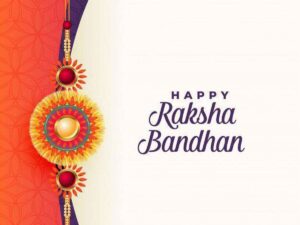| Raksha Bandhan | |
|---|---|

A rakhi being tied throughout Raksha Bandhan
|
|
| Official identify | Raksha Bandhan |
| Additionally known as | Rakhi Pournima, Rakhi, Saluno, Ujjwal Silono, Rakri |
| Noticed by | Hindus, historically |
| Kind | Spiritual, Cultural, Secular |
| Date | Purnima (full moon) of Shrawan |
| 2020 date | three August (Mon) |
| 2021 date | 21 August (Sat) |
| Associated to | Bhai Duj, Bhai Tika, Sama Chakeva |
 Raksha Bandhan, also Rakshabandhanam (Sanskrit: रक्षाबन्धनम्, romanized: Rakṣābandhanam), is a well-liked, historically Hindu, annual ceremony, or ceremony, which is central to a pageant of the identical identify, celebrated in India, Nepal and different components of the Indian subcontinent, and amongst folks around the world influenced by Hindu tradition. On at the present time, sisters of all ages tie a talisman, or amulet, known as the rakhi or raksha, around the wrists of their brothers, symbolically defending them, receiving a present in return, and traditionally investing the brothers with a share of the duty of their potential care.
Raksha Bandhan, also Rakshabandhanam (Sanskrit: रक्षाबन्धनम्, romanized: Rakṣābandhanam), is a well-liked, historically Hindu, annual ceremony, or ceremony, which is central to a pageant of the identical identify, celebrated in India, Nepal and different components of the Indian subcontinent, and amongst folks around the world influenced by Hindu tradition. On at the present time, sisters of all ages tie a talisman, or amulet, known as the rakhi or raksha, around the wrists of their brothers, symbolically defending them, receiving a present in return, and traditionally investing the brothers with a share of the duty of their potential care.
Raksha Bandhan is noticed on the last day of the Hindu lunar calendar month of Shraavana, which usually falls in August. The expression “Raksha Bandhan,” Sanskrit, actually, “the bond of safety, obligation, or care,” is now principally utilized to this ritual. Till the mid-20th-century, the expression was extra generally utilized to the same ritual, additionally held on the identical day, with priority in historic Hindu texts, during which a home priest ties amulets, charms, or threads on the wrists of his patrons, or modifications their sacred thread, and receives presents of cash; in some locations, that is nonetheless the case. In contrast, the sister-brother festival, with origins in people tradition, had names which diversified with location, with some rendered as Saluno, Silono, and Rakri.A ritual related to Saluno included the sisters placing shoots of barley behind the ears of their brothers.
Of particular significance to married ladies, Raksha Bandhan is rooted within the follow of territorial or village exogamy, during which a bride marries out of her natal village or city, and her mother and father, by customized, don’t go to her in her married dwelling. In rural north India, the place village exogamy is strongly prevalent, massive numbers of married Hindu ladies journey again to their parents’ homes every year for the ceremony. Their brothers, who sometimes stay with the mother and father or close by, generally journey to their sisters’ married dwelling to escort them again. Many youthful married ladies arrive just a few weeks earlier at their natal houses and keep till the ceremony. The brothers function lifelong intermediaries between their sisters’ married and parental houses, in addition to potential stewards of their security.
In urban India, where families are more and more nuclear, the festival has become more symbolic, however continues to be extremely well-liked. The rituals related to this pageant have unfold past their conventional areas and have been remodeled by means of expertise and migration, the flicks, social interplay,and promotion by politicized Hinduism, in addition to by the nation state.
Amongst men and women who usually are not blood kin, there’s additionally a remodeled custom of voluntary kin relations, achieved by means of the tying of rakhi amulets, which have reduce throughout caste and sophistication traces, and Hindu and Muslim divisions.In some communities or contexts, different figures, comparable to a matriarch, or an individual in authority, might be included within the ceremony in ritual acknowledgment of their benefaction.